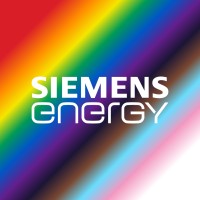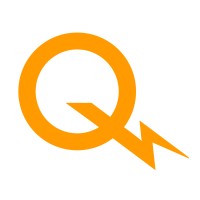
Siemens Energy Company Cyber Security Posture
siemens-energy.comSiemens Energy is one of the world’s leading energy technology companies. The company works with its customers and partners on energy systems for the future, thus supporting the transition to a more sustainable world. With its portfolio of products, solutions and services, Siemens Energy covers almost the entire energy value chain – from power generation and transmission to storage. The portfolio includes conventional and renewable energy technology, such as gas and steam turbines, hybrid power plants operated with hydrogen, and power generators and transformers. A majority stake in the wind power subsidiary Siemens Gamesa Renewable Energy (SGRE) makes Siemens Energy a global market leader for renewable energies. An estimated one-sixth of the electricity generated worldwide is based on technologies from Siemens Energy. Siemens Energy employs 99,000 people worldwide in more than 90 countries and generated revenue of around €31 billion in fiscal year 2023. Siemens Energy is a trademark licensed by Siemens AG
Siemens Energy Company Details
siemens-energy
39952 employees
1626995
none
Renewable Energy Power Generation
siemens-energy.com
333
SIE_2459990
In-progress
Between 900 and 1000
This score is AI-generated and less favored by cyber insurers, who prefer the TPRM score.
 Siemens Energy Global Score
Siemens Energy Global Score.png)

Siemens Energy Company Scoring based on AI Models
| Model Name | Date | Description | Current Score Difference | Score |
|---|---|---|---|---|
| AVERAGE-Industry | 03-12-2025 | This score represents the average cybersecurity rating of companies already scanned within the same industry. It provides a benchmark to compare an individual company's security posture against its industry peers. | N/A | Between 900 and 1000 |
Siemens Energy Company Cyber Security News & History
| Entity | Type | Severity | Impact | Seen | Url ID | Details | View |
|---|---|---|---|---|---|---|---|
| Siemens Energy | Ransomware | 100 | 5 | 06/2023 | SIE0403723 | Link | |
Rankiteo Explanation : Attack threatening the organization’s existenceDescription: The five new MOVEit assaults victims revealed on the dark web leak site for the Clop ransomware organization include the industrial behemoths Siemens Energy, Schneider Electric, werum.com, UCLA (http://ucla.edu), Abbie (http://abbvie.com), and Abbie. Worldwide, vital national infrastructures use Industrial Control Systems (ICS) from Siemens Energy and Schneider Electric. Threat actors claim they were able to compromise 100 different firms utilising the most recently revealed MOVEit Transfer vulnerability CVE-2023-34362. The US government offers rewards for information that leads to the arrest, indictment, or location of danger actors. | |||||||
| Siemens | Vulnerability | 100 | 5 | 3/2025 | SIE903031625 | Link | |
Rankiteo Explanation : Attack threatening the organization’s existenceDescription: Siemens has disclosed a critical vulnerability in SINAMICS S200 drive systems that could lead to a complete system compromise. The vulnerability, tracked as CVE-2024-56336, exposes affected devices to unauthorized manipulation of industrial processes, equipment damage, disruptions, and data theft due to an unlocked bootloader, which allows attackers to install malicious code without authentication. The risk is exacerbated by the device's wide use in critical industrial, manufacturing, energy, and infrastructure sectors. Although Siemens has not released a fix, it urges customers to implement network segregation and monitor systems while it works on a remedy. | |||||||
Siemens Energy Company Subsidiaries

Siemens Energy is one of the world’s leading energy technology companies. The company works with its customers and partners on energy systems for the future, thus supporting the transition to a more sustainable world. With its portfolio of products, solutions and services, Siemens Energy covers almost the entire energy value chain – from power generation and transmission to storage. The portfolio includes conventional and renewable energy technology, such as gas and steam turbines, hybrid power plants operated with hydrogen, and power generators and transformers. A majority stake in the wind power subsidiary Siemens Gamesa Renewable Energy (SGRE) makes Siemens Energy a global market leader for renewable energies. An estimated one-sixth of the electricity generated worldwide is based on technologies from Siemens Energy. Siemens Energy employs 99,000 people worldwide in more than 90 countries and generated revenue of around €31 billion in fiscal year 2023. Siemens Energy is a trademark licensed by Siemens AG
Access Data Using Our API

Get company history
.png)
Siemens Energy Cyber Security News
How Siemens Energy Tackles Evolving Cyber Threats in the Energy Sector
As the energy sector faces a growing number of threats, Siemens Energy is partnering with Recorded Future to stay one step ahead of bad actors.
Cybersecurity guidance for the global offshore wind industry
Offshore wind power capacity is expanding rapidly as countries across the world seek to meet their clean energy targets with a critical and ...
Utilities are facing an AI-cybersecurity paradox
Utilities are facing an AI-cybersecurity paradox. As energy infrastructure faces growing cybersecurity risks, utilities are warming to ...
Blockchain collabs with Siemens to tackle data security needs in automotive, energy and healthcare
The widespread adoption of connected systems in automotive, energy and healthcare industries has changed the way businesses operate and ...
Tenable, Siemens Energy expand collaboration on OT cybersecurity in energy sector
“Siemens Energy brings deep OT knowledge to cybersecurity challenges and has become a leader in securing energy work sites,” Marty Edwards, ...
Judith Wunschik
She is highly experienced in working with a wide range of expert groups and is a renowned public speaker and valued member of prestigious international security ...
Energy efficiency solutions present viable ‘low hanging fruit’ in Asia’s energy transition efforts: Siemens Energy VP finance APAC
While Asia focuses on renewable energy, the region must explore effective interim options as it works on infrastructure and financing to ...
Developers will need support from governments to overcome supply chain troubles
Developers will require state support to overcome the supply chain bottlenecks currently slowing the rollout of offshore wind energy in various ...
Cybersecurity services and consulting
Gain assistance in improving your cybersecurity posture and your resiliency toward critical infrastructure. Our holistic approach supports you.

Siemens Energy Similar Companies

Iberdrola
With more than 180 years of history, Iberdrola is today a global energy leader, the leading wind power producer and one of the largest electricity companies in the world in terms of stock market capitalisation. We have been committed to clean energy for more than 20 years with the objective of exce

Hydro Québec
Hydro-Québec produit, transporte et distribue de l'électricité. Elle exploite essentiellement des énergies renouvelables, plus particulièrement l'hydroélectricité. Elle fait aussi de la recherche dans les domaines reliés à l'énergie et s'intéresse activement à l'efficacité énergétique. En outre, ell

Frequently Asked Questions
Explore insights on cybersecurity incidents, risk posture, and Rankiteo's assessments.
Siemens Energy CyberSecurity History Information
How many cyber incidents has Siemens Energy faced?
Total Incidents: According to Rankiteo, Siemens Energy has faced 2 incidents in the past.
What types of cybersecurity incidents have occurred at Siemens Energy?
Incident Types: The types of cybersecurity incidents that have occurred incidents .
Additional Questions
What Do We Measure?
















Every week, Rankiteo analyzes billions of signals to give organizations a sharper, faster view of emerging risks. With deeper, more actionable intelligence at their fingertips, security teams can outpace threat actors, respond instantly to Zero-Day attacks, and dramatically shrink their risk exposure window.
These are some of the factors we use to calculate the overall score:
Identify exposed access points, detect misconfigured SSL certificates, and uncover vulnerabilities across the network infrastructure.
Gain visibility into the software components used within an organization to detect vulnerabilities, manage risk, and ensure supply chain security.
Monitor and manage all IT assets and their configurations to ensure accurate, real-time visibility across the company's technology environment.
Leverage real-time insights on active threats, malware campaigns, and emerging vulnerabilities to proactively defend against evolving cyberattacks.




